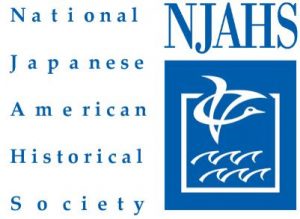Farm Labor While Confined
War Relocation Authority Incarceree Farm Labor Teacher Education Project
Through Our Eyes: An Investigation into Rohwer and Jerome Incarcerees Relations with African Americans
– Free Workshop for 4th Grade to 12th Grade Humanities, History, and Social Studies Teachers –
Download Curriculum on our LiveBinders Site
PASSWORD FOR DOWNLOAD: Farming
During World War II, the federal government forcibly removed people of Japanese ancestry on the West Coast and imprisoned them in American concentration camps. A little-known part of their story is that the War Relocation Authority (WRA) expected them to grow food to feed themselves, contribute to the war effort, and make barren lands flourish under the most difficult of circumstances. How did the incarcerees grapple with these demands?
Mark your calendar for our next dynamic workshop – Farm Labor While Confined. Our case studies will take us from concentration camp farms to sugar beet fields to potato harvests across five states. We will focus on six incarceration sites: Tule Lake (CA), Minidoka (ID), Gila River (AZ), Poston (AZ), Amache (CO), and Heart Mountain (WY). Part of our discussion will address the Temporary Farm Leave Program and the Farm Labor Camps in which incarcerees worked on private farms and large agricultural tracts that were facing labor shortages due to the war.
Join your colleagues for open-ended inquiry into this important historic moment when the personal experience of imprisoned people of Japanese ancestry intersects with 1940s US labor history. What is the legacy of their agricultural labor on the Western American landscape?
Join your colleagues for open-ended inquiry into Japanese American incarcerees’ farm labor during World War II
These two-day, 3-1/2 hour online or 6 hour in-person interactive workshops, (length depends on regional location), explores our topic through examination of primary source documents, case studies, images, and secondary sources in the Farm Labor While Confined curriculum. Sessions will be broken up with 15-minute breaks.
The curriculum will focus the following:
– Farming in the War Relocation Centers
– Temporary Farm Labor
– Department of Agriculture Farm Labor Camps
– Intersection between African-Americans and Arkansas Japanese-American incarcerees.
Separate curriculum is designed elementary and for secondary students.
Taught by Educational Experts in Japanese-American History
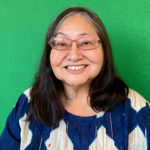
DR. GRACE MORIZAWA is the Education Coordinator for the NJAHS. Previously she was an elementary school teacher in Oakland and principal of Lake Elementary School in San Pablo, CA. Morizawa is a Sansei, third generation Japanese American. Her parents were incarcerated in Heart Mountain. Grace is a teacher consultant with the Bay Area Writing Project. She has a BA in English from Pacific University, an MA in Creative Writing from San Francisco State, and a doctorate from the Leadership in Education and Equity Program at University of California, Berkeley.
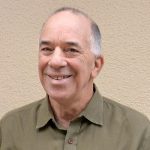
DR. STAN PESICK taught 11th grade United States history in the Oakland Unified School District for eighteen years. From 2008-2012 he coordinated the Oakland Unified History/Social Studies Department. Stan has worked with the Bay Area Writing Project as a teacher consultant since 1989. He has worked as a curriculum consultant to the NJAHS since 2014. Stan is currently working with National Writing Project, University of California, Berkeley, to develop materials and methods focused on helping students write more effectively for political and civic purposes. Stan has a Ph.D. from Stanford University.
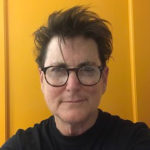
LYNN FONFA brings over thirty-five years of experience in the field of education. She joined the National Park Service in 1989 and recently retired from her position as Education Specialist for the Golden Gate National Recreation Area. Since 1995, she directed the K through 12 programs for one of the largest urban national parks. She earned a Master’s Degree in Education, specializing in Environmental Education/Curriculum Design, and a Master’s Degree in Public History, specializing in United States history and historic preservation. Previous to the NPS, Fonfa worked as an archivist, educator, and development associate with several prestigious historical associations, including the California Historical Society and the Western Jewish Historical Center of the Judah L. Magnes Museum in Berkeley. Fonfa is part of the curriculum development team for the NJAHS Teacher Education Incarceree Farm Labor Project.
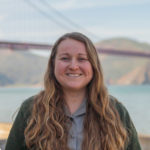
ARACELY MONTERO is the Education Branch Specialist of at Golden Gate National Recreation Area. Her role includes developing relevant place-based and curriculum-based education programs, supporting Education Rangers at Muir Woods, Presidio, Marin Headlands, Alcatraz, and Fort Point, and working with partners who support youth programming within the Bay Area. Aracely is also a member of the NPS Allies for Inclusion Committee and a trained facilitator to host dialogues in our park around Diversity, Equity, and Inclusion. Aracely received her B.A. in Environmental Studies from UC Santa Barbara, and attained her Master’s degree in Recreation, Parks, and Tourism with a focus on Social Justice Education from San Francisco State University.
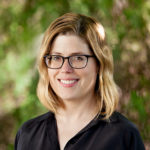
MORGEN YOUNG, GUEST SPEAKER. She is a senior historian with Historical Research Associates, Inc., a history and cultural resources management consulting company with offices across the country. She is based in the Portland, Oregon, office. Morgen leads HRA’s interpretive services program. Prior to joining HRA in 2016, she ran her own historical consulting company. Morgen’s expertise includes exhibition development and curation, interpretative planning, oral history, and digital history. She has a background in nineteenth and twentieth-century United States history, the history of the Pacific Northwest, community history, and the history of health sciences. She served as the project director of Uprooted: Japanese American Farm Labor Camps During World War II from 2011 to 2016. The project produced a traveling exhibition; a comprehensive website, www.uprootedexhibit.com; a collection of oral histories; two documentary videos; and high school-level lesson plans. Her work with Uprooted was recognized with the National Council on Public History’s Excellence in Consulting Award in 2016.
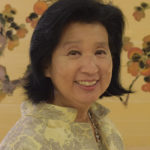
ROSALYN TONAI is the executive director of the National Japanese American Historical Society, Inc. She was the project director and co-curator of the exhibition Strength & Diversity, Japanese American Women, 1885 to 1990, a groundbreaking award-winning museum exhibition co-produced by the National Japanese American Historical Society and the Oakland Museum of California. Tonai has co-edited four teacher’s/classroom guides, The Bill of Rights: the Japanese Americans and the World War II Experience, Honor Bound, the Story of the 442nd Regimental Combat Team, Making Peace and Classroom Activities Guide: Diamonds in the Rough, Japanese Americans in Baseball. She is a graduate of the Getty Museum Management Institute and the Coro Foundation Asian Pacific leadership program. Ms. Tonai has an M.P.A. from the Nonprofit Management Institute, University of San Francisco’s College of Professional Studies, and a B.A. Social Welfare from UC Berkeley.
Workshop Format
This is an in-person interactive workshop with some asynchronous work. We will send some readings to review ahead for small group breakout sessions where you will discuss the readings with 4-5 teachers. We will also have large group sharing and discussion. This workshop is highly interactive. We have found that we learn and grow in our thinking when we work collaboratively and talk with each. Sessions will also include speakers with Q and A, a short video, and a time to write briefly and share writing.
Teachers will have access to all curriculum materials online. We ask that you download the materials to refer to during the workshop (not screen switch). Because the workshops are live and interactive, we encourage your full participation and you will be asked to share with each other as much as possible.
Workshop Format
This is an online interactive workshop with some asynchronous work. We will send some readings to review ahead for small group breakout sessions where you will discuss the readings with 4-5 teachers. We will also have large group sharing and discussion. This workshop is not a webinar; it is highly interactive. We have found that we learn and grow in our thinking when we work collaboratively and talk with each. Sessions will also include speakers with Q and A, a short video, and a time to write briefly and share writing.
Teachers will have access to all curriculum materials online. We ask that you download the materials to refer to during the workshop (not screen switch). Because the workshops are live and interactive, we encourage your full participation and you will be asked to share with each other as much as possible.
CHICAGO/WASHINGTON DC/HEART MOUNTAIN, WY. - VIRTUAL - June 29 and 30
Speaker: Judge Lance Ito
SAN FRANCISCO BAY AREA/MIS CENTER - IN-PERSON - July 18
Crissy Field Center, San Francisco Presidio. Tour of the Military Intelligence Service Historical Learning Center. 8:30 to 5 (includes morning refreshments, lunch, and trip to MIS Center)
SEATTLE/MINIDOKA - VIRTUAL - July 21 and 22
Speaker: Kurt Ikeda, Director of Interpretation and Education, Minidoka National Historical Site.
BOISE/SEATTLE/AMACHE - VIRTUAL - July 21 and 22
Speaker Kurk Ikeda
PHOENIX/POSTON/GILA RIVER, AZ - VIRTUAL - July 27-28
Speaker: Marlene Shigekawa
DENVER, CO - IN-PERSON October 8-9
LITTLE ROCK/JEROME/ROHWER, AR - IN-PERSON, March 4 and 5, 2023
Workshop Details
- Email support for the curriculum is available during the school year.
- There is an optional opportunity to participate in a small online study group forclassroom adaption of the curriculum and other teaching implications.
- Participants will be given an honorarium for attending.
Limited Space! Apply Now
Download Flyer
For questions about the workshop, please email Grace Morizawa.
This workshop is co-sponsored by the National Japanese American Historical Society, the National Park Service, and our regional partners.
Matching funds provided by the Chizu and Ernest Iiyama Memorial Fund.
Top image: Japanese-American camp, war emergency evacuation, [Tule Lake Relocation Center, Newell, Calif.] 1942 or 1943. Library of Congress.
